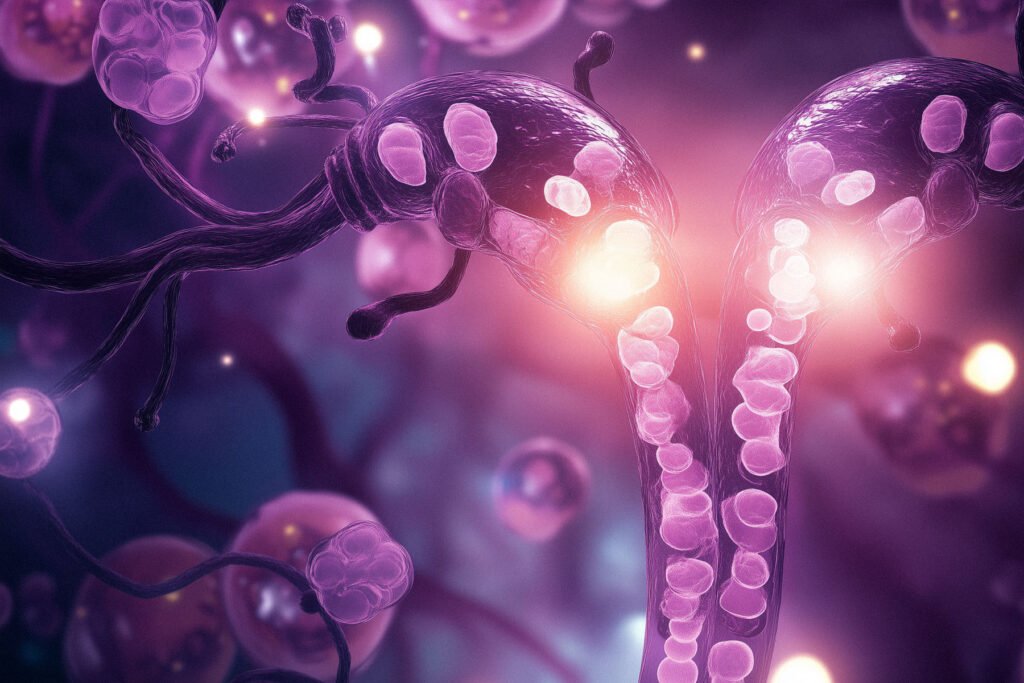Imagine your body as a bustling city, alive with movement and purpose. In this city, messengers are constantly running around, delivering vital instructions to keep everything in order. These messengers? They’re your hormones — tiny but powerful chemical signals that control how your body functions every single day.
Hormones are like the “text messages” of your body’s internal network. Produced by specialized glands in the endocrine system, hormones travel through your bloodstream, delivering instructions to organs, tissues, and cells. Each hormone has a specific job, ensuring that everything from your energy levels to your mood and metabolism stays in balance. Let’s break down some of the key players in this amazing system.
Estrogen: The Female Hormone that Does More than You Think
Often called the “female hormone,” estrogen is primarily produced in the ovaries and plays a crucial role in developing and maintaining female characteristics. But estrogen’s influence goes beyond just reproductive health. It affects the brain, mood, and even the skin. When estrogen levels change — like during puberty or menopause — you might notice mood swings, changes in skin texture, or even shifts in energy levels. Estrogen helps keep everything in harmony, and when it’s off-balance, you’ll feel it.
Progesterone: Estrogen’s Partner in Crime
Working hand-in-hand with estrogen is progesterone. While estrogen revs things up, progesterone acts as the calming influence. Known as the “pregnancy hormone,” progesterone preps the uterus for potential pregnancy after ovulation. If there’s no pregnancy, progesterone levels drop, signaling the start of menstruation. Think of progesterone as the hormone that balances out estrogen’s effects, keeping the cycle steady and predictable.
Testosterone: Not Just for Men
Testosterone is often associated with men, but it’s important for women too. Produced in smaller amounts in the ovaries and adrenal glands, testosterone helps maintain muscle strength, bone density, and libido in women. For men, testosterone drives deeper voices, body hair, and other male characteristics. For women, it supports energy, muscle health, and general vitality. So yes, ladies, testosterone plays a valuable role in your well-being too.

Cortisol: The Stress Hormone
Let’s talk about cortisol, the body’s natural response to stress. When you’re feeling anxious, scared, or under pressure, your adrenal glands release cortisol to help you cope. It gives you a burst of energy to handle tough situations, whether it’s running from danger or meeting a big deadline. However, if cortisol levels stay elevated for too long, it can leave you feeling worn out, anxious, or even unwell. Cortisol is essential, but too much of it can disrupt the body’s balance.
Insulin: The Traffic Cop of Blood Sugar
Insulin, produced by the pancreas, is the body’s traffic controller for blood sugar. After a meal, insulin helps move glucose (sugar) from your bloodstream into cells, where it’s used for energy. When insulin doesn’t function properly, as in diabetes, sugar builds up in the blood, which can lead to serious health complications. Insulin is crucial for maintaining energy levels and supporting overall metabolic health.
Growth Hormone: Fuel for Growth and Repair
Produced primarily during childhood and puberty, growth hormone is essential for growth, helping you develop stronger muscles and bones. But it’s not just for kids — in adults, it aids in cell repair and supports muscle health. Growth hormone is what helps your body recover from workouts, maintain muscle mass, and even support the immune system.
Melatonin: The Sleep Hormone
Melatonin is your body’s natural sleep regulator. Produced by the pineal gland, it controls your sleep-wake cycle, telling your body when it’s time to wind down. Melatonin production increases in the evening, preparing you for sleep, and decreases in the morning to help you wake up. If you’re having trouble sleeping, it might be due to low melatonin levels. Light exposure, especially from screens, can also reduce melatonin, making it harder to get restful sleep.
Why Hormones Matter: Balancing the Messengers
When hormones are in harmony, everything in your body runs smoothly — from waking up to digesting food, regulating emotions, and maintaining a healthy weight. But when hormones are out of balance, issues arise. Imbalances can cause mood swings, fatigue, weight gain, and other health concerns. For instance, too much cortisol can lead to stress-related issues, while low estrogen can cause mood changes and skin issues.

Understanding how your hormones work empowers you to listen to your body’s signals and take steps to support balance. Whether it’s managing stress to keep cortisol levels steady or eating a balanced diet to support insulin function, small lifestyle choices can make a big difference in hormone health.
Final Thoughts: Listening to Your Body’s Messages
Hormones may seem complex, but they’re simply your body’s way of communicating what it needs to function at its best. By learning about these tiny messengers, you’re not only understanding your health better but also setting yourself up for a happier, more balanced life. The next time you feel stressed, tired, or notice changes in your body, remember — it could be your hormones talking to you.
So, take a moment to listen and make informed choices that support your body’s unique rhythm and needs. Hormones may be small, but they have a mighty impact on your life. Keep learning, stay curious, and embrace the incredible power of your body’s natural messengers.







